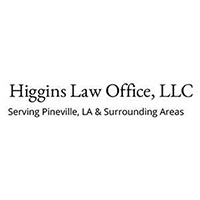Lecompte White Collar Crime Lawyer, Louisiana
Sponsored Law Firm
-
 x
x

Click For More Info:
-
The Law Offices of Richard L. Cooper, P.A.
848 Brickell Avenue Suite 800 Miami, FL 33131» view mapDWI/DUI, Drug Trafficking, Felony Nationally Ranked Top 40 Under 40
With Richard L. Cooper you can expect a trusted confidant who will work diligently to fully understand your case and determine a road map to help you regain control of your life.
800-756-2781
Not enough matches for Lecompte White Collar Crime lawyer.
Below are all Lecompte Criminal lawyers.
George Higgins
✓ VERIFIEDCriminal, Accident & Injury
George Lewis Higgins III received his Juris Doctor degree in 1979 from Paul M. Hebert Law Center at Louisiana State University in Baton Rouge. Mr. Hig... (more)
J. Marc Lampert
Criminal, Divorce & Family Law, Divorce, Family Law
Status: In Good Standing Licensed: 51 Years
FREE CONSULTATION
CONTACTLeo Joseph Flynn
Criminal, Divorce & Family Law, Employment, Estate
Status: In Good Standing Licensed: 13 Years
Katharine Geary
Family Law, Divorce & Family Law, Criminal, Accident & Injury
Status: In Good Standing Licensed: 40 Years
Thomas Rockwell Willson
Criminal, Elder Law, Credit & Debt, Personal Injury
Status: In Good Standing Licensed: 46 Years
Benjamin David James
State Appellate Practice, Family Law, Criminal, Personal Injury
Status: In Good Standing Licensed: 14 Years
Richard V Burnes
Federal Trial Practice, Criminal, Civil & Human Rights, Personal Injury
Status: In Good Standing Licensed: 62 Years

 Richard L. Cooper Miami, FL
Richard L. Cooper Miami, FL AboutMiami Attorney at Law
AboutMiami Attorney at Law ServicesCriminal Defense
ServicesCriminal Defense

